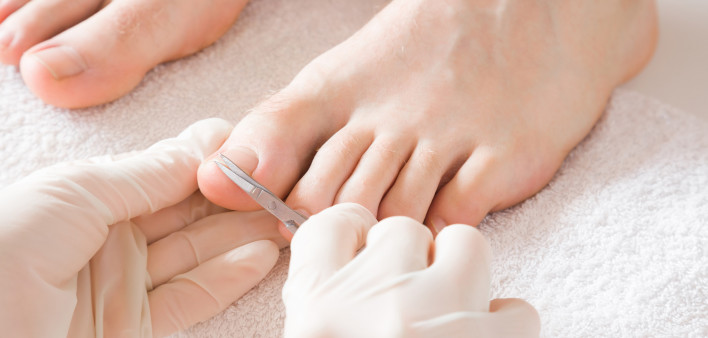A nail salon in Durham, North Carolina, must pay an HIV-positive client $7,500 for denying him pedicures because of his HIV status, according to a settlement reached with the Department of Justice, as reported in The News & Observer.
Discrimination based on HIV status violates the federal Americans with Disabilities Act (ADA). Title III of the ADA states that public accommodations, such as doctor’s offices and nail salons, cannot deny services to people who have disabilities, including people living with HIV.
The customer filed a complaint with the government alleging that upon learning of his HIV status, the owner of Diva Nails told him not to return to the salon. The settlement describes the findings of the investigation:
On May 24, 2019, the Complainant visited Diva Nails in order to receive a pedicure. He received a pedicure and proceeded to pay his bill. As he was paying his bill, another customer, who Complainant knew from church, loudly asked if the salon “knew about his condition.”
The owner of Diva Nails followed the Complainant outside, allegedly told him that the owner knew the Complainant had “AIDS,” and told the Complainant not to come back to the salon. Diva Nails denies that it refused the Complainant future services, but admits that its manager asked the Complainant whether he was HIV-positive, and requested a doctor’s note or other documentation regarding the condition.
According to the Complainant, he became embarrassed and anxious by what he believes was discriminatory treatment on the basis of his HIV status.
The Complainant lives near Diva Nails and does not drive, limiting his ability to obtain pedicure services elsewhere. He has not been back to Diva Nails since the events alleged.
In addition to ruling that the salon discriminated against the client, the government also noted that “it would have been inappropriate for Diva Nails to request a doctor’s note or other documentation regarding HIV. Diva Nails has not shown that treating the complainant would have posed a direct threat to the health or safety of others.… [Because] HIV cannot be transmitted through day-to-day, casual contact, and occupational HIV transition is extremely rare.”
As the POZ Basics on HIV/AIDS spells out, HIV is transmitted through body fluids such as blood, semen and breast milk, and it is generally contracted through unprotected sex or sharing needles, from mother to child during pregnancy or breastfeeding or from being stuck with a needle or receiving a blood transfusion.
As part of the settlement, Diva Nails is also required to submit a nondiscrimination policy for the government to review and then post that policy in the reception area of all Diva Nails locations and on its Facebook page. The salon must train staff on HIV/AIDS and disability discrimination.
To read about related discrimination cases, see “Cosmetic Surgeon Must Pay $375K in Damages for HIV Discrimination” and “Lawsuit Claims Restaurant Worker Was Fired Because He Has HIV.”

See our POZ cover story “Defying Discrimination” (pictured above) about taking action against stigma and discrimination. It includes tips on filing an HIV lawsuit.
For more information on the ADA and HIV discrimination, visit ADA.gov/HIV. You can file an ADA complaint with the U.S. Department of Justice online and by mail. For more information about the ADA, visit ADA.gov, or call 800-514-0301 or 800-514-0383 (TDD).







1 Comment
1 Comment